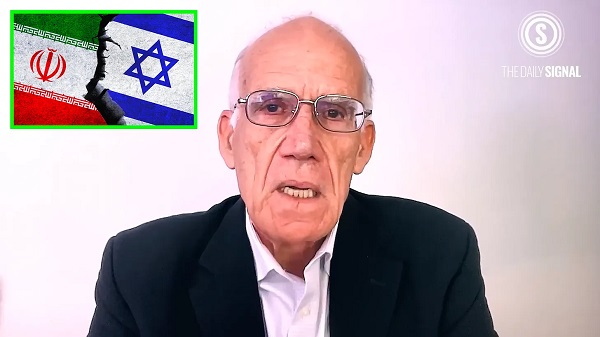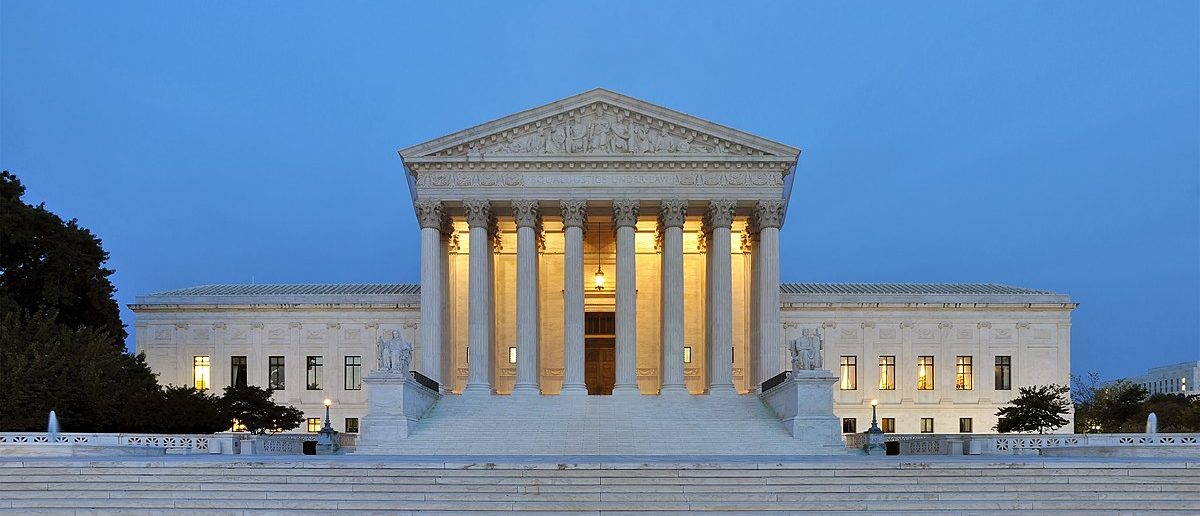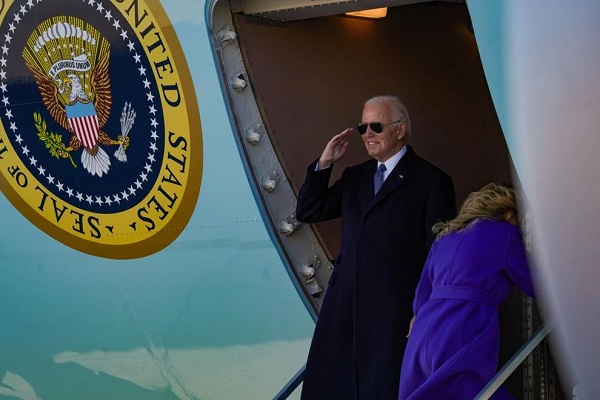International
Taiwan Criticizes CBC Correction on United Front Buddhist Land Story, Citing PRC Political Pressure

Taiwan’s Foreign Ministry warns that CBC’s editorial change “undermines the essence of press freedom” and reflects growing Chinese pressure on international media.
Canada’s state broadcaster, CBC, is facing diplomatic criticism from Taiwan after issuing a controversial correction to an explosive story regarding Chinese influence via foreign investment in Prince Edward Island—raising new questions about whether Chinese government pressure is compromising Canadian press freedom and influencing media coverage of foreign interference.
On June 14, CBC/Radio-Canada published a report on alleged ties between Bliss and Wisdom, a Buddhist group with growing land holdings on Prince Edward Island, and the Chinese Communist Party’s United Front Work Department. The report—based in part on findings from The Bureau’s contributor Garry Clement—noted deep concerns from PEI residents about the group’s agricultural land acquisitions and its alleged links to Beijing, including its reported advocacy for China’s annexation of Taiwan.
It highlighted a high-ranking monk from Taiwan who traveled “between his home country, Prince Edward Island, and China” in 2023 for ideological outreach, at the invitation of a Buddhist organization affiliated with the United Front Work Department—the Chinese Communist Party’s covert foreign interference arm.
But on June 17, CBC issued a correction: “In that story, the reporter said Taiwan is a country that China is threatening to invade. In fact, Taiwan is a self-governing island, and there is dispute around who controls it.” No explanation was provided for the change.
That revision quickly sparked backlash in Taipei. In a statement to Taiwan News, Taiwan’s Ministry of Foreign Affairs (MOFA) said it was “regretful and disappointed” to see international media “engage in self-censorship or deliberately avoid using the term ‘country’ to refer to Taiwan due to political pressure from China or concerns about Beijing’s stance.” MOFA reportedly reiterated that Taiwan “is a sovereign and independent country, and is not subordinate to the People’s Republic of China,” and urged foreign media to uphold “objectivity and fairness,” warning that compromise on coverage “undermines the essence of press freedom” and distorts Taiwan’s international status.
CBC did not respond to a request for comment from Taiwan News.
CBC is funded by the federal government and mandated by the Broadcasting Act to serve the public interest with independence, journalistic integrity, and balanced coverage. Taiwan’s concerns, delivered through its Ministry of Foreign Affairs, suggest a de facto state-to-state issue.
The CBC correction was also flagged Thursday by Canadian diaspora advocacy group Friends of Hong Kong, which has documented suspected United Front influence in Canada, including media pressure campaigns. “So disappointing for Canadian media: this is a politically-charged correction, due to either self-censorship or external intervention, and wilfully blind to the reality of #Taiwan the island state,” the group posted to X, calling attention to CBC’s correction notice.
The controversial CBC report was informed by a parallel investigation led by Garry Clement—a former RCMP proceeds-of-crime director—along with former CSIS Asia-Pacific chief Michel Juneau-Katsuya and publisher Dean Baxendale. The three co-authors of the forthcoming book Canada Under Siege spent the past year examining Bliss and Wisdom’s land acquisitions, foreign financial inflows, and political influence on Prince Edward Island. In his column for The Bureau, Clement warned that the RCMP’s refusal to investigate the group reflects “a chilling portrait of political complacency” and asserted that Canadian democracy is being degraded not by coups or force, but by “the quiet neglect of responsibility.”
CBC has not acknowledged external pressure behind the correction, but The Bureau has previously documented similar interference. In November 2024, China’s Consul General Yang Shu directly pressured Vancouver Mayor Ken Sim after he invited Taiwan’s representative to a civic luncheon, stating: “This was inappropriate… The Consulate General of the People’s Republic of China is the only consular mission representing China in Vancouver.” The PRC expressed dissatisfaction with the participation of Taiwan’s envoy in the B.C. Consular Corps luncheon—despite established diplomatic practice allowing their attendance.
Given this backdrop, it is plausible—though not confirmed—that CBC received similar behind-the-scenes pressure following its original PEI report.
That concern finds further grounding in evidence tabled before Canada’s Hogue Commission and leaked intelligence reviewed by The Bureau.
A leaked October 2022 CSIS report analyzed by The Bureau found that China’s election interference and political influence in Canada have been enabled by Beijing’s covert “takeover” of Chinese-language media, along with sophisticated, massively funded schemes targeting mainstream outlets and seeking to control “key media entities,” according to intelligence documents.
These clandestine operations have involved threats against journalists, the documents state, as well as inducements—such as benefits offered by Vancouver’s Chinese Consulate to cultivate “key editors, producers, and high-ranking managers.”
Among the declassified top-secret records presented to the Hogue Commission by diaspora-group participant Gabriel Yiu is a July 2023 Canadian intelligence report titled “CHINA: Domination of Chinese-Language Media in Canada Poses National Security Threats.” The document details systemic Chinese Communist Party influence over Chinese-language media outlets in Canada.
“Communist Party of China (CPC)-friendly narratives inundate Chinese-language media in Canada,” it says. “Censorship (including self-censorship) is pervasive, and alternative voices are few or marginalized in mainstream Chinese-language media. This includes both traditional media, such as newspapers, and digital platforms like WeChat.”
In a column for The Bureau, Yiu wrote, “I believe the Canadian intelligence agency’s assessment is accurate. From my own experience as a commentator since the 1990s, I have observed these shifts.” He also underscored key excerpts from the CSIS report:
- “The CPC’s strategy to control media operates on two fronts: narrative control and platform control. [redacted] overt and clandestine.”
- “The CPC limits opportunities for dissenting voices [redacted], provides economic incentives [redacted], and fosters self-censorship [redacted].”
- “The CPC’s influence on Chinese-language media, shaping public opinion overseas, also supports other activities, including transnational repression and influencing electoral outcomes.”
The Bureau is a reader-supported publication.
To receive new posts and support my work, consider becoming a free or paid subscriber.
Invite your friends and earn rewards
conflict
Victor Davis Hanson Makes a Disturbing Prediction About What Happens If Iran Survives

Amidst rough seas, you need a steady sailor.
Not just what’s happening, but what’s coming next.
“I think we’re going to see things that we haven’t seen in our lifetime in the Middle East,” he said.
This could go one of two ways, neither is small.
Victor Davis Hanson isn’t known for hyperbole. So when he opens with a warning like this, people pay attention:
“We are at an historic time in the Middle East,” he said.
“Never in our lifetimes have we been closer to a complete revolutionary fervor that gives promise of normalcy for the Middle East. And never have we been in more danger of seeing the entire region blow up.”
The paradox is striking.
Peace may be closer than ever, but so is total collapse.
And at the center of it all is the unfolding conflict between Iran and Israel, which Hanson called “surreal.”
Reflecting on the rapid collapse of Iran’s regional dominance, Hanson admitted that even a few years ago, this moment would have been unthinkable.
“If we had this conversation five years ago,” he said, “and I said to you, the Iranian nation that is huge compared to Israel, ten times the population, the Iranian nation has lost all control of the Houthi terrorists, and they are themselves neutered…”
He pointed to a chain reaction across the region: Iran’s proxy forces in Gaza and the West Bank have been neutralized. Hezbollah, once a feared military force, is now dormant.
“They’re gone as a Hamas, as a fighting force. The formidable, the terrifying Hezbollah cadres, they’re inert.”
The chaos in Syria, once a stronghold of Iranian influence, now seems to be working against Tehran.
“There is no more Syria, the Assad dynasty, the pro-Iranian, the Syria. It’s in chaos. But whatever the chaos is, seems to be anti-Iranian.”
The collapse is strategic, not just symbolic. Hanson noted that the so-called “Shia crescent” connecting Tehran to the Mediterranean is no longer intact.
“Lebanon is free of Iranian influence. So is Syria. Gaza, a de facto, will be.”
Even Russia, once a key ally, is no longer a player in the region.
“It’s tied down in Ukraine,” he said.
“Iran itself, the formidable powerhouse of the Middle East that evoked terror all over, has no defenses.”
Over the course of just five days, Israel has launched a targeted military campaign to dismantle Iran’s strategic infrastructure.
According to Hanson, the damage has been sweeping.
“They have dismantled all of the Iranian missile defenses. They have dismantled the terrorist hierarchy. They have dismantled the people who are responsible for the nuclear program.”
And yet, there’s risk.
“The Iranians have sent over 400 ballistic missiles and drones into Israel,” he said, “and 90 percent are stop. But that 10 percent gets through.”
Which brings us to the turning point.
All of this only matters if it ends with Iran’s theocracy on the brink of collapse.
If it doesn’t, everything that’s been gained could be erased.
“All of this chaos and all of this war will be for not if Iran’s theocracy emerges intact from this war.”
Even more dangerous, he added, would be a scenario in which the country’s nuclear infrastructure survives or can be quickly rebuilt.
That possibility has triggered one of the most urgent strategic questions on the table: Can Israel finish the job?
Or will it need help from the United States to strike Iran’s deeply buried nuclear facilities?
This is where things get complicated.
Under the “America First” foreign policy doctrine, Trump has been clear: no more forever wars, no more ground troops in the Middle East.
But Hanson argued that Trump’s actions tell a deeper story.
“I’m not an isolationist, I’m a Jacksonian,” he said, echoing what Trump might say.
“You should have known that when I took out Soleimani… when I took out Baghdadi… when I took out the Wagner Group.”
The message? Trump doesn’t go looking for wars. But when deterrence is at stake, he’s not afraid to act decisively.
Still, Hanson posed a chilling question: what if the Iranian regime survives?
“If this war should end with the Iranian regime intact and the elements of its nuclear program recoverable,” he warned, “then in some ways it will be all for naught.”
Despite Iran’s military losses, its media destruction and its isolated position, surviving such a coordinated strike could give it something even more powerful than weapons: perceived invincibility.
“It will be more like, oh my gosh, Iran survived everything that Israel, and by association the United States, threw at it.”
“It’s indestructible.”
And that, Hanson suggested, would be the real danger.
Not just a return to the status quo, but a shift in perception that emboldens the regime and reshapes the balance of power across the region.
Now the question hanging over the entire conflict is this: does the world play it safe and allow remnants of Iran’s nuclear infrastructure to survive?
Or risk a final strike that could eliminate the threat for good, but possibly trigger even greater instability?
“Do you risk more danger by taking out and eliminating the nuclear threat for good,” Hanson asked, “and by association, you humiliate the theocracy to the point it can be overthrown?”
That’s the gamble.
He didn’t shy away from his own discomfort with war.
“I don’t like forever wars,” he added.
“I don’t like preemptive wars. I do not like the United States intervening anywhere in that godforsaken area. But if the war ends with the regime intact and a recoverable nuclear program, it won’t just be back to square one. It will be a disaster.”
That’s when he dropped a bombshell prediction of the future in the area after the dust settles in the desert.
Whether this ends in collapse or resurgence, Hanson believes the next phase of the war could reshape the entire region and the world’s understanding of power in the Middle East.
“So we’ll see what happens,” he said.
“And hold on, everybody. I think we’re going to see things that we haven’t seen in our lifetime in the Middle East. And it could turn out very bad.”
“But it could also turn out to be quite revolutionary and remake the map of the entire region.”
This story was made possible with the help of Overton —I couldn’t have done it without him.
If you’d like to support his growing network, consider subscribing for the month or the year. Your support helps him expand his team and cover more stories like this one.
We both truly appreciate your support!
Subscribe to The Vigilant Fox
espionage
FBI Buried ‘Warning’ Intel on CCP Plot to Elect Biden Using TikTok, Fake IDs, CCP Sympathizers and PRC Students—Grassley Probes Withdrawal

Intel warned of tens of thousands of illegal votes via fake IDs tied to CCP-linked students; FBI shut it down days after Wray denied foreign interference.
Senate Judiciary Committee Chairman Chuck Grassley announced that his panel will launch a formal investigation into why the FBI in September 2020 ordered the withdrawal and destruction of an explosive “raw intelligence” report alleging that Beijing harvested American private identity data from millions of TikTok accounts, enabling Chinese intelligence to manufacture fraudulent driver’s licenses that “would allow tens of thousands of Chinese students” to cast mail-in ballots in favor of Joe Biden during the 2020 presidential election.
Grassley confirmed receipt of the now-declassified document and said it raises “serious national‑security concerns that need to be fully investigated by the FBI.” The Senate Judiciary Committee is now requesting internal communications, a formal justification for the FBI’s “substantive recall” of the document, and a review of the FBI’s compliance with federal intelligence record-keeping laws.
The pre-election document does not assert that fraudulent ballots were cast, and explicitly warns that the information should not be actioned without FBI coordination. But the scale and specificity of the allegations—now under Senate scrutiny—have dramatically reignited questions over how U.S. intelligence agencies handled politically sensitive reports implicating the Chinese Communist Party in election interference.
According to Fox News, the heavily redacted FBI intelligence now under investigation has declassified sections that reveal the potential of a Beijing-directed voter fraud campaign designed to leverage Chinese international students, fraudulent ID records mailed into U.S. states, and populations sympathetic to the Chinese Communist Party living in America, all in efforts to elect Joe Biden over Donald Trump.
The Bureau is a reader-supported publication.
To receive new posts and support my work, consider becoming a free or paid subscriber.
One section of the report cited by Fox News states the subject as: “[REDACTED] Chinese Government Production and Export of Fraudulent US Drivers Licenses to Chinese Sympathizers in the United States, in Order to Create Tens of Thousands of Fraudulent Mail-In Votes for US Presidential Candidate Joe Biden, in late August 2020.”
The FBI’s source allegedly obtained the information from an identified sub-source, who claimed they obtained the information from unidentified PRC government officials. One of the report’s core claims is that in late August 2020, the Chinese government had produced a large amount of fraudulent United States drivers licenses that were secretly exported to the United States.
The memo states: “The fraudulent drivers licenses would allow tens of thousands of Chinese students and immigrants sympathetic to the Chinese Communist Party to vote for US Presidential Candidate USPER Joe ((Biden)), despite not being eligible to vote in the United States.”
As reported yesterday by The Bureau, the FBI’s report aligns with seizures from CBP in Chicago, where officers at the International Mail Facility intercepted nearly 20,000 counterfeit U.S. driver’s licenses in the first half of 2020—the vast majority shipped from China and Hong Kong. The licenses were often destined for college-aged recipients, with many containing real ID numbers and scannable barcodes, raising alarms that they could be used for fraudulent identification.
The FBI election interference report—allegedly pulled from circulation by then-Director Christopher Wray—contained consequential assertions about TikTok, which has been identified in subsequent U.S. intelligence assessments as a Chinese information warfare and election interference asset.
The 2020 memo stated: “China had collected private US user data from millions of TikTok accounts, to include name, ID and address, which would allow the Chinese government to use real US persons’ information to create the fraudulent drivers license.” It added that the fraudulent drivers licenses were to include true ID number and true address of U.S. citizens, making them difficult to detect, and that China planned to use the fraudulent drivers licenses to account for tens of thousands of mail-in votes.
Beijing has already succeeded in directing the social video app TikTok to “censor content outside of China,” according to a classified Department of Justice brief filed last summer in a case that casts one of the world’s most popular media platforms as a Chinese Communist Party weapon poised to attack Americans during an election or geopolitical crisis in the same manner as Chinese cyber-spies and hackers that are currently buried within North American critical infrastructure.
Yet the FBI “warning” document also reveals internal doubts. According to Fox News, FBI notations flagged gaps in the TikTok claim, stating that “a person’s address information was not a valid field when creating a TikTok account. It was unspecified how China would attain US address data from the application.” Another annotation stated that the source is available for re-contact.
The following page of the intelligence report reportedly included a directive for “SUBSTANTIVE RECALL,” dated September 25, 2020—one day after FBI Director Wray told Congress that the Bureau had seen “no coordinated voter fraud” ahead of the 2020 election. The FBI’s internal context note acknowledged that the source received the information from a sub-source who cited anonymous PRC officials. The warning section of the document repeated that the allegations were part of “an information report, not finally evaluated intelligence.” The document also stated: “Recipients should also ensure that any citation of the information in finished intelligence products draws on the SUBSTANTIVE RECALL of this report rather than the previous version.”
The document reportedly instructed all recipients to destroy all copies of the original report and remove the original report from all computer holdings, and to cite only the recall order in any future analysis. That sequence—first, a claim implicating China in voter manipulation; next, immediate questioning of the methodology; and finally, a full internal shutdown—has now become the focus of a politically and institutionally charged congressional investigation.
The remainder of the document is heavily redacted, Fox reported, and more information is being requested from the FBI as part of the Senate’s investigation. “Grassley is requesting additional documentation from the FBI to verify the production and is urging the FBI to do its due diligence to investigate why the document was recalled, who recalled it and inform the American people of its findings,” a Grassley spokesperson reportedly told Fox News.
The FBI memo’s resurfacing also casts renewed light on a broader internal struggle inside the U.S. intelligence community in 2020: whether to formally acknowledge China’s intent or actions in shaping the presidential election. At the time, DNI John Ratcliffe and a small group of dissenting officials reportedly suggested that China had taken covert steps to influence the race—particularly in opposition to Donald Trump—and that this was being downplayed or scrubbed from official analyses for political reasons. Ratcliffe’s January 7, 2021 memo to Congress directly accused senior intelligence officers of pressuring analysts to downplay or suppress these findings, especially at the CIA and ODNI. He wrote that the 2021 Intelligence Community Assessment (ICA) failed to fully and accurately reflect the scope of the Chinese government’s efforts to influence the 2020 U.S. federal elections.
According to Ratcliffe, internal IC investigations found that China analysts appeared reluctant to assess Chinese actions as interference because they tend to disagree with the administration’s policies. The whistleblower report from ODNI’s own Analytic Ombudsman warned of undue pressure on analysts offering alternative views and concluded that politicization existed from both above and below.
One of the officials who refused to back down was Christopher Porter, then the National Intelligence Officer for Cyber, who claims that his minority assessment on Chinese influence was effectively buried. Porter alleged in late 2024 that he was harassed and forced out of government after submitting his dissent.
In a series of posts on X applauding the decision to release the report to Grassley, Porter wrote that he was upbraided four years ago for raising similar warnings. He argued that the failure of U.S. intelligence to confront China’s espionage—particularly its hacking of critical infrastructure and telecommunications networks—would only embolden the regime. “We are now reaping the harvest of that bad decision,” he added. In another message, Porter emphasized that “politics has to stop at the water’s edge,” urging national leaders to call out Chinese influence operations “at the highest level.”
Porter went further, criticizing U.S. allies like the United Kingdom for dragging their feet on national security decisions regarding China’s penetration of telecommunications. Canada, under Liberal Prime Minister Justin Trudeau, took about three years to decide on banning Huawei. Critics such as Porter attribute such reluctance to economic motives overriding sober analysis.
Today, with the FBI’s suppressed memo in the hands of the Senate Judiciary Committee, Porter’s and Ratcliffe’s minority views are no longer isolated warnings. They are now part of a growing body of evidence suggesting that political sensitivity—especially over which party Beijing may prefer—might have played a role in sidelining national security intelligence during one of the most consequential U.S. elections in history.
The Bureau is a reader-supported publication.
To receive new posts and support my work, consider becoming a free or paid subscriber.
Invite your friends and earn rewards
-

 Daily Caller1 day ago
Daily Caller1 day agoUnanimous Supreme Court Ruling Inspires Hope For Future Energy Project Permitting
-

 Alberta2 days ago
Alberta2 days agoUnified message for Ottawa: Premier Danielle Smith and Premier Scott Moe call for change to federal policies
-

 espionage24 hours ago
espionage24 hours agoFBI Buried ‘Warning’ Intel on CCP Plot to Elect Biden Using TikTok, Fake IDs, CCP Sympathizers and PRC Students—Grassley Probes Withdrawal
-

 Agriculture24 hours ago
Agriculture24 hours agoUnstung Heroes: Canada’s Honey Bees are not Disappearing – They’re Thriving
-

 espionage1 day ago
espionage1 day agoFrom Sidewinder to P.E.I.: Are Canada’s Political Elites Benefiting from Beijing’s Real Estate Reach?
-

 International2 days ago
International2 days agoJudiciary explores accountability options over Biden decline ‘coverup’
-

 Economy2 days ago
Economy2 days agoOttawa’s muddy energy policy leaves more questions than answers
-

 Alberta1 day ago
Alberta1 day agoAlberta’s carbon diet – how to lose megatonnes in just three short decades





